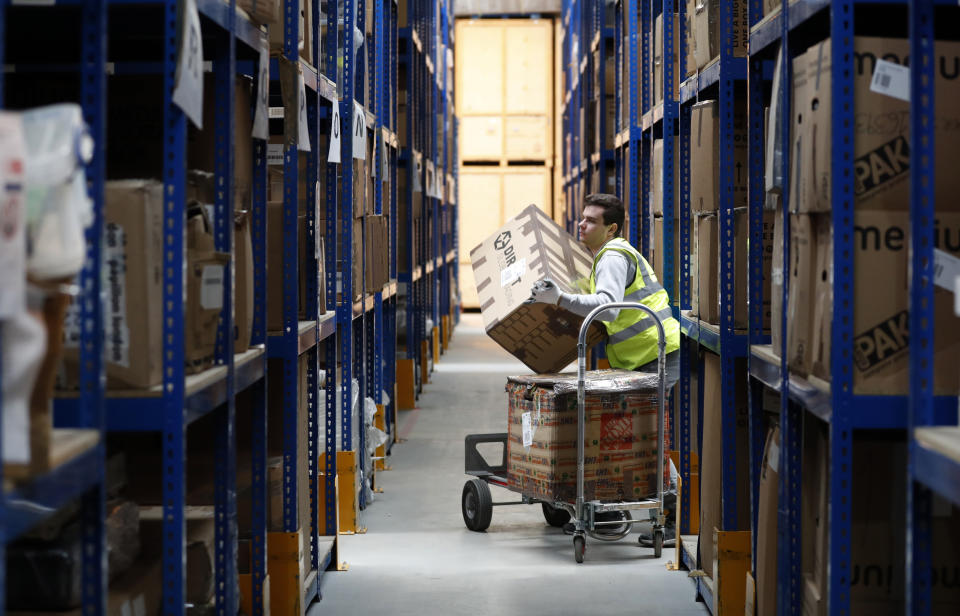British firms stockpile £6.6bn of goods in run-up to Brexit

British firms stockpiled an estimated £6.6bn of goods when the UK still planned to leave the EU on 29 March, new figures show.
The UK saw a “substantial increase” in levels of stock held by companies in the first three months of 2019, according to figures released on Friday by the Office for National Statistics.
The ONS highlighted a recent survey in which firms said Brexit uncertainty was a key reason for stockpiling, amid fears of delays, shortages or price hikes for imported goods if Britain left without a deal.
Analysis by Yahoo Finance UK suggests firms were building up £519m of stock every week in the three months leading up to the planned departure.
The deadline was delayed as parliament refused to back the government’s deal with the EU, with prime minister Theresa May requesting a delay after failing to secure support for any alternative route to Brexit.

READ MORE: No-deal Brexit could spark ‘flurry of profit warnings’ from UK firms
The ONS said in its quarterly economic survey: “There has been much interest in the extent to which stockbuilding has been taking place in the UK, which would be recorded under changes in inventories.
“The underlying data show a substantial increase of £6.6 billion in stocks being held by UK companies in the most recent quarter.
“The latest decision maker panel survey finds that uncertainty has played a role in the increase in stocks held by businesses, as those respondents that reported Brexit was an important source of uncertainty for their business were much more likely to have increased stocks than firms who saw Brexit uncertainty as less important.”
Some economists have suggested firms’ build-up of stock was so significant it gave a temporary boost to GDP.
Growth dipped by 0.4% in April, which the ONS said reflected “the unwinding of the build-up of stocks by businesses earlier in the year and earlier-than-usual shutdowns by car manufacturers in April.”
READ MORE: Three-quarters of warehouses running out of space in run-up to Brexit
The figures only show stockpiling from 1 January onwards, suggesting the real levels could be even higher.
A survey of UK warehouse owners in mid-January showed three-quarters of warehouses were already full.
The UK Warehousing Association found a shortage of space around big cities as companies prepared for enormous disruption to supply chains from a possible no-deal departure.
Firms and the government have been forced to step up planning once again ahead of a new likely departure date of 31 October.
Frontrunner Boris Johnson has said Britain will leave “come what may” on that date, increasing the risk of severe economic damage through a possible no-deal exit.
READ MORE: Japan warns Boris Johnson and Jeremy Hunt to avoid no-deal

 Yahoo Finance
Yahoo Finance 